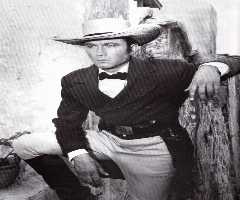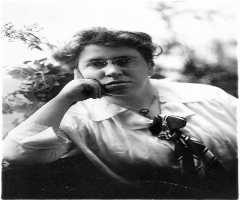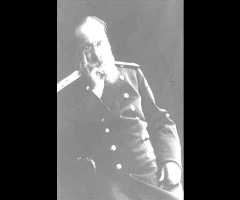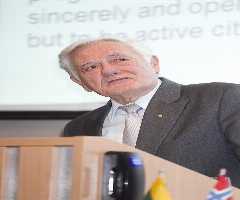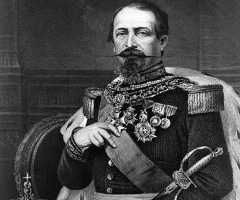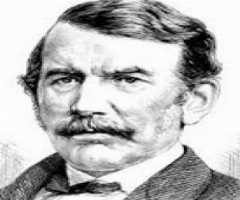Jonas Zemaitis Biography, Life, Interesting Facts

Birthday :
Died On :
Birth Place :
Zodiac Sign :
President of Lithuania;
Jonas Zemaitis Biography
Jonas Zemaitis was the President of Lithuania. He was also the Chairman of the Lithuanian Movement for Freedom. He was one of the leaders of the army and spearheaded the resistance against the Soviet activity in his native land of Lithuania. Being an enthusiastic patriot, Jonas Zemaitis also known as Vytautas fought for the rights of his people till the very end. He in the end laid down his life for his cause.
He is remembered as a hero in Lithuanian history. It might seem tongue in cheek that the great revolutionary had an enjoyable childhood, growing up in his uncle’s big dairy farm.
Early Life
Jonas Zemaitis was born in Palanga on 15 March 1909. Palanga was then Russian Empire but is now known as Lithuania. His parents were Jonas Zemaitis and Petron?l?Daukšait?. Jonas was baptized in Palanga's church even though his parents were not religious at all. He was in Poland with his parents from the year 1910 to 1917. In his younger days, he grew up in his uncle’s big dairy farm and attended a primary school in the area.
In 1917, he returned to Lithuania and settled down with his grandparents in Kiaulininkai village. It was here that he attended the Raseiniai Gymnasium. Jonas graduated in 1921. Later, he started studying in the Kaunas Military School in 1926, and he was able to finish his studies in 1929.
Early Career Beginnings
It was there that Jonas Zemaitis began developing his ground-breaking ideas. He commenced to work as a lieutenant in the military and then advanced his career lessons at the Fontainebleau school best known for artillery (Ecole d’Artillerie de Fontainebleau). Through his improvement in skills, he acquired the rank of a captain and went on to join the flocks of Lithuanian military forces.
It was during the 1940s that his skills qualified him as part of the Lithuanian Freedom Army and the Lithuanian partisans. He eventually became known as the Head of State of present-day Lithuania in 2009. All through his career, Jonas was very passionate about honoring his country to the extent that he could have died for Lithuania.
Career Debut
Jonas Zemaitis' career debut began in the Second Flock of Artillery with him as a commander. Notably, the other weaponry was set up to Klaipeda in 1935. It was during a period of political turbulence and worry in the nation. He became actively involved in a street struggle to protect the honor of an officer and was shot at in the process of activism.
He had a quick operation upon injury, and thus his life was saved. From the year 1936 to 1938, he went onto study at the Fontainebleau School of artillery (Ecole d’Artillerie de Fontainebleau). He got the opportunity to improve his French and German skills because the school provided him with the necessary resources. He finally joined the flocks of Lithuania military forces after acquiring the rank of a captain.
In 1940, the USSR took over Lithuania, and Jonas Zemaitis went on with his active service in the 617th flock of artillery. During this chaotic period, many people were retired and many other people arrested. But despite this, Jonas Zemaitis had taken an oath as a captain to serve the Soviet Union. He was soon appointed the director of training in the 617th artillery unit.
He trained the next generation of soldiers for the People’s Army In his position. In 1941, when the Lithuanian units of the People’s Army were situated at the Pabrad? military base; Jonas being a patriot did something unexpected; he capitulated himself to incarceration under the Germans along with another group of soldiers.
It was revealed that the Lithuanians who denied serving the Nazis were held at POW camps until the summer of 1942, but Jonas Zemaitis, on the other hand, did not want to serve the Nazis. He was put under questioning and was later allowed to return home to his family. Back at home, he worked as a technician of peat extraction for a short period.
Jonas eventually joined the Lithuanian Territorial Defence Force in 1944. This deal was organized by Povilas Plechavi?ius who was the Lithuanian military officer at the time. Povilas addressed the Lithuanian people over the radio on 16 February 1944 after appointing Jonas to the force.
Germans started to become concerned over the devotion of the Lithuanian officers’ corps, and so they decided to disband them. Povilas Plechavi?ius was enrolled at Salaspils concentration camp to learn military discipline; this was part of the Germans plans. Due to all this restructuring and reduction, the army soon fell apart.
After the disbanding of the Lithuanian Territorial Defence Force, Jonas Zemaitis went into hiding. It did not take time, and soon he was discovered by the Lithuanian followers. They pleaded with him and asked him to join them back in the force. There Jonas then took a vow on his consecrated honor and became an affiliate of the Lithuanian Freedom Army and the Lithuanian enthusiasts.
In his years in the force, Jonas rose through the ranks and eventually became the person in charge of the army. He later came to establish the Union of Lithuanian Freedom Fighters in 1949 and automatically became its chairman. All through his career and to the very end he contributed significantly towards the supporter confrontation to the Soviet profession.
Awards And Achievement
Jonas Zemaitis was awarded the position of Brigadier General in March 2009; he was designated as the fourth President of Lithuania.
Personal Life And Legacy
In 1940, Jonas Zemaitis married his wife, Elena Valionyt?. They had a son together, and they named him Laimutis. However, his son had to be raised by other people due to unavoidable circumstances.
In December 1951, Jonas suffered a cerebral hemorrhage which paralyzed him. During that time he was in hiding, but in 1953, his place of concealment was ascertained by Soviet agents. Due to his disability, he was quickly arrested and transported to Moscow and was queried by Lavrentiy Beria. Later he succumbed to his condition and was put to death in the Butyrka prison on November 26, 1954, in Moscow. He died at the age of 45.






